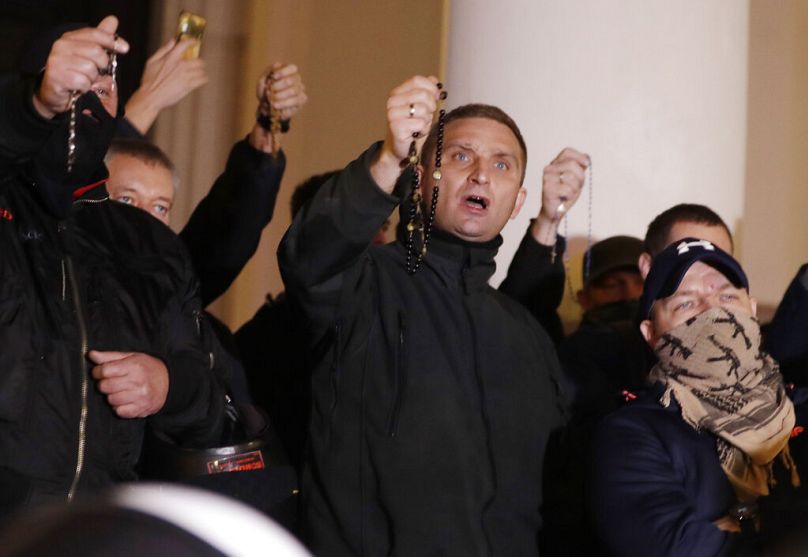Protests have raged in Poland following a court ruling that imposed a near-total ban on abortion.
In October, Poland became the only European Union country to remove a right to legal abortion from its citizens.
 ADVERTISEMENT
ADVERTISEMENT
 ADVERTISEMENT
ADVERTISEMENT
The country’s top court ruled on October 22 that it was unconstitutional to abort a foetus if it had congenital defects.
Poland’s constitution calls for protecting the life of every individual.
The ruling was an illustration of the stark divisions in Polish society that had already been laid bare in this summer’s presidential election, which the conservative incumbent Andrej Duda won — but with the narrowest of margins.
For Duda’s supporters and the Catholic Church, it was a victory.
Marek Jedraszewski, the Archbishop of Krakow, said the judges had made a courageous decision to defend human life “from the moment of conception to the [moment of] natural death”.
But for many Polish women, the ruling merely tightened the rules on terminating pregnancies in a country that already had some of Europe’s most restrictive abortion laws.
Even before the ruling, many Polish women sought abortions in neighbouring Germany or the Czech Republic.
Within Poland, women are now only legally allowed abortions when a pregnancy endangers a woman’s health or life, or if it results from rape or another illegal act.
Nationwide protests
Given the deep divisions in Polish society, it seemed inevitable that women angered by the ruling would take to the streets to protest.
For weeks many have gathered outside parliament carrying banners with the words “Women’s strike”, in defiance of Poland’s laws banning mass gatherings because of the coronavirus outbreak.
But few expected the protests to last so long, or for them to spread to church services, where demonstrators have disrupted Mass across the country.
Much of the anger was directed at the governing Law and Justice Party because the court’s ruling had political origins: it came in response to a motion from right-wing MPs.
For Leah Hoctor, regional director at the Centre for Reproductive Rights NGO, the Polish law was an attempt by a small sector of society "to play politics with women's lives".
She told Euronews following the ruling: “Laws that prohibit abortion do nothing except to harm women's health and wellbeing by pushing it underground or by forcing women to travel to foreign jurisdictions, to other countries, to access care."
She said a majority of the Polish public did not favour their MPs' use of judicial means to introduce new restrictions on abortion: "It really does represent the actions of a very small section of society who are playing politics with women's healthcare."
Could it be reversed?
Marcin Zaborowski, the editor of the Res Publica Nowa journal, said there was speculation that the government had sought to pursue restrictions on abortion as a way to divert attention from its management of the coronavirus pandemic, which “is not doing very well”.
He told Euronews: “I’m very puzzled about why did we decide to tighten the abortion law right now, because there was an attempt to do that a few years back when Law and Justice came to power.
“And you had similar protests to what you had now — it was called the Black Protest, because ladies were dressing in black — and then [the government] decided to pull back and not to press ahead with tightening the abortion law.
“I would not be very surprised if they do come up with a similar trick right now [and reverse the ruling].”
But given the decision was made by Poland’s Constitutional Court, the highest court in the country, any move to reverse its decision must come from parliament.
Law and Justice had said it would propose a new law to “better support women and their children”, which could be an opportunity to soften the blow of the court decision.
The battle in Polish society appears unlikely to subside soon.
Watch our video explainer in the player above.











